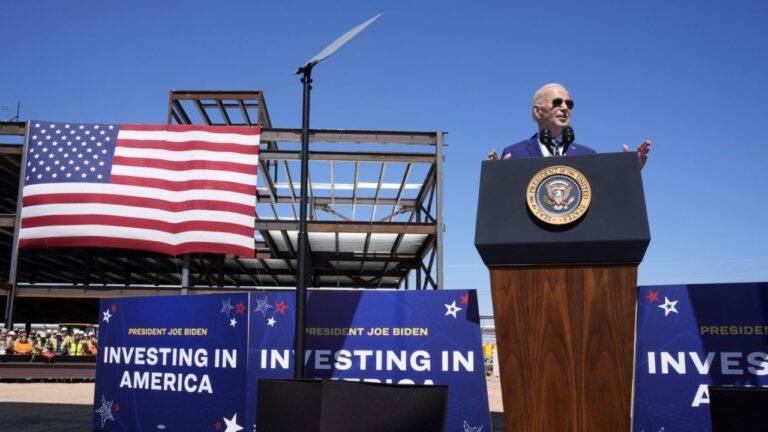The Biden administration recently announced $8.5 billion in subsidies to help Intel build a new semiconductor factory. If you just listen to what politicians say when they write a big check to a big business, it sounds like a great deal, just like subsidies often do. Secure well-paying jobs for workers. This will protect the future of the country. It shows that this is a place that people want to be. We are building economic momentum. Yada yada yada.
It's all ridiculous.
There is a very simple reason why politicians give special favors. A company spokesperson asked for a favor, and an elected official said yes.
Elected officials don't come up with many original ideas. But there are plenty of people selling things to them. Each governor has a line out the door for people who want to make their case.
This is a trend that deceives taxpayers. This is the classic problem of concentrated profits and distributed costs. Some people find a common interest and rally around it to ask for a favor. The problem is that doing them a favor comes at a cost. People facing costs are less likely to lobby against advantageous positions because they are not united.
One lobbying firm had a great sales pitch for its services: “If it's not on the table, it's on the menu.”
Not everyone asks for special favors. Sometimes people really want policies that benefit the people. However, the scales are tipped against the public, as beneficiaries benefit more from subsidies while individual taxpayers save little by blocking them.
Hollywood asking for cash, manufacturers asking for “tax withholding,” research companies asking for tax credits, etc. are clearly people seeking benefits at the public's expense.
Politicians get something in return for saying yes. In some cases, we may receive campaign donations. But the coverage you get from business materials is more valuable.
They will appear at ribbon cuttings and groundbreaking ceremonies. Their names will be featured in the news for what they have done to create jobs. And praise continues to come in from those involved.
It's that simple.
Let's consider what a business handout is not. This is not a strategic decision to try to grab a share of a growing industry.
If so, the state's major industries would not be the biggest beneficiaries. In Washington state, aerospace is at the top of the list, in Louisiana oil and gas has the lion's share, and Michigan has given hundreds of millions of dollars to the auto industry. Bigwigs in the state ask for favors, and legislators tend to give them what they want.
Subsidies are meant to show that lawmakers are working on employment measures, which is different from improving economic performance. Lawmakers use press releases to promote their own hiring announcements rather than their track record of growth. There has been little follow-up with companies that have received subsidies, and lawmakers want people to take press releases at face value. A sophisticated assessment of the economic impact of favoritism shows that it by no means lives up to the hype.
Elected officials typically only talk about their jobs to explain why their favor matters. If you press them, they may offer two other valid reasons. That means we have to provide subsidies to compete with other states, and that it's better to give benefits than to miss out on expanding businesses.
Competition points ring hollow. Instead of competing for support, elected officials could agree with each other to stop contributing public money. They could enter into an interstate compact to end selective preferences. But they're more interested in saying yes to companies that ask for special treatment.

A convenient excuse remains that states should give preferential treatment to business expansion and relocation rather than passing up on them. But no one seems to be trying to verify that claim. After all, these subsidies are optional, and lawmakers can opt out of the deal if they so choose. But there is no political benefit to withholding funds.
People should realize that the benefits of corporate welfare benefits go to politicians and big corporations, not the general public. If so, politicians would be more likely to refuse requests for favors.
James Homan is director of fiscal policy at the Mackinac Center for Public Policy, a free market research and education organization based in Midland, Michigan.
Copyright 2024 Nexstar Media Inc. All rights reserved. This material may not be published, broadcast, rewritten, or redistributed.


